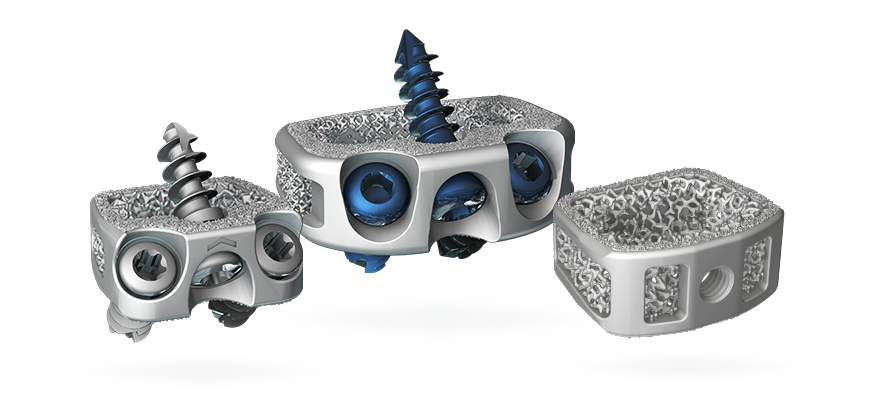
Centinel Spine is the largest privately-held spine company focused on anterior column reconstruction.
FLX devices are 3D-printed, all-titanium implants which feature a combination of solid and porous radiolucent sections designed to reduce mechanical stiffness and improve visibility, as compared to solid titanium implants.
The devices also feature a proprietary FUSE-THRU™ trabecular scaffold, designed to allow for bony in-growth and on-growth throughout the implant. Centinel Spine received FDA-clearance for multiple cervical and lumbar interbody fusion device families in May of this year.
“FLX offers me another great material choice to add to my fusion armamentarium,” says Dr. Jason Garber, a Neurosurgeon with Las Vegas Neurosurgical Institute, implanting STALIF C FLX™ Cervical Integrated Interbody and STALIF M FLX Lumbar Integrated Interbody devices.
“With STALIF® implants made from PEEK, titanium-surfaced PEEK, and now 3D-printed titanium, I have the unique opportunity to provide my patients with optimal care options for their individual and specific needs.”
STALIF FLX Integrated Interbody devices offer a unique advantage over other all-titanium implants—as they are indicated for use at one or two contiguous levels with both autograft and/or allogenic bone graft.
Dr. Stelios Koutsoumbelis, Chief of Division of Orthopedic Surgery at South Nassau Communities Hospital, performing the first ACTILIF C FLX Cervical Interbody implantation comments, “The FLX implant offers an open bone graft window optimizing graft volume and allowing bone growth throughout the trabecular matrix structure. The open configuration also allows for CT visualization post-operatively to assess fusion.”
Centinel Spine chairman and CEO John Viscogliosi said: “The initial implantations of these FLX products represent a significant milestone in the evolution of our interbody technologies and advanced material platforms.
“Our FLX products merge the proven benefits of the STALIF design with a truly novel, all-titanium lattice technology. This provides surgeons the flexibility to use multiple implant material options through a single set of instruments to address each patient’s unique pathology.”
Centinel Spine—the pioneer of the No-Profile®, Integrated Interbody—has a 30-year global clinical history of success behind these devices for the treatment of degenerative disc disease. The FDA clearance of the FLX platform is the next step in the evolution of Centinel Spine executing on its mission to become the worldwide leading spine company, addressing spinal disease anteriorly with the widest breadth and depth of technology platforms.
Source: Company Press Release




